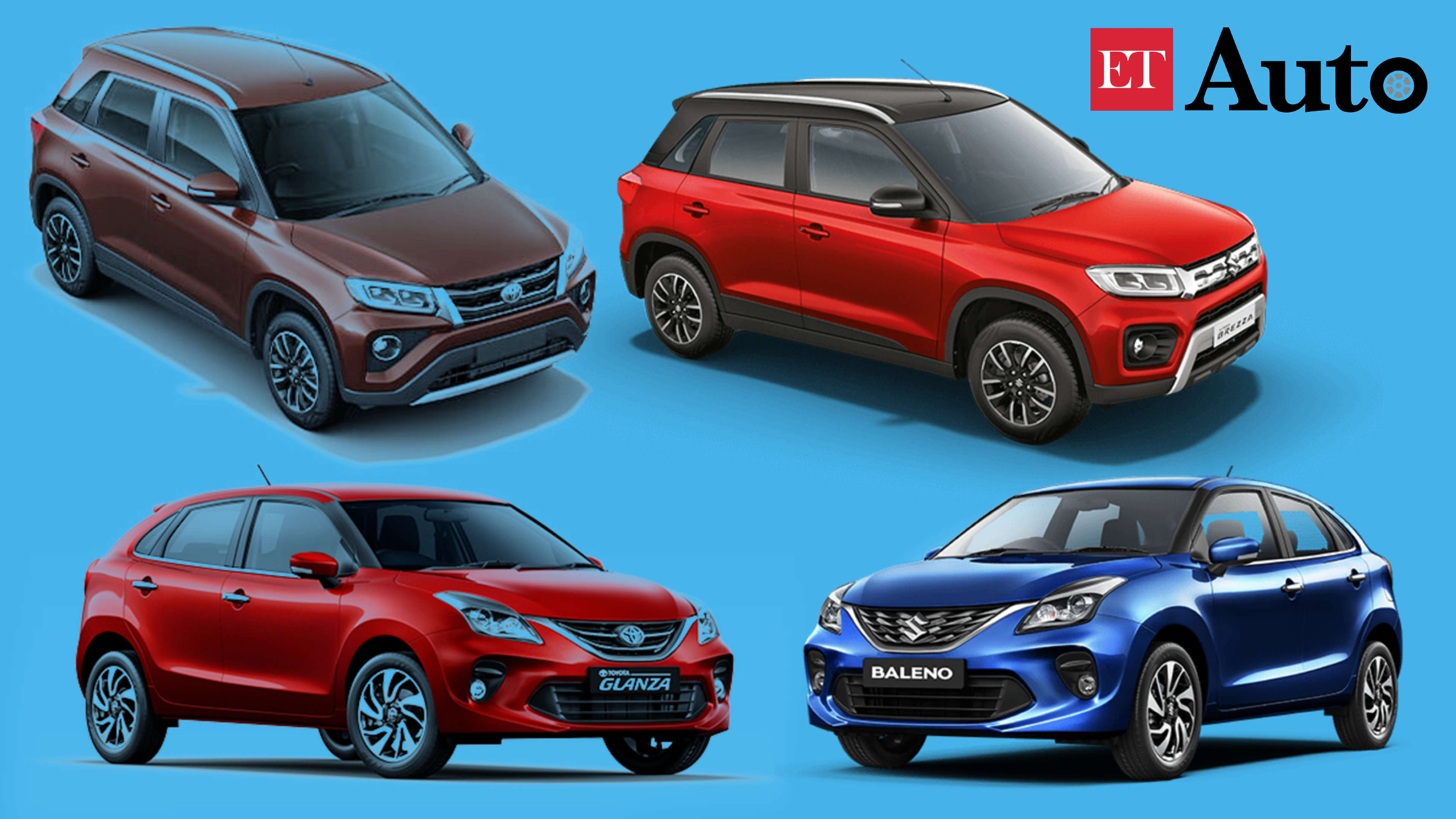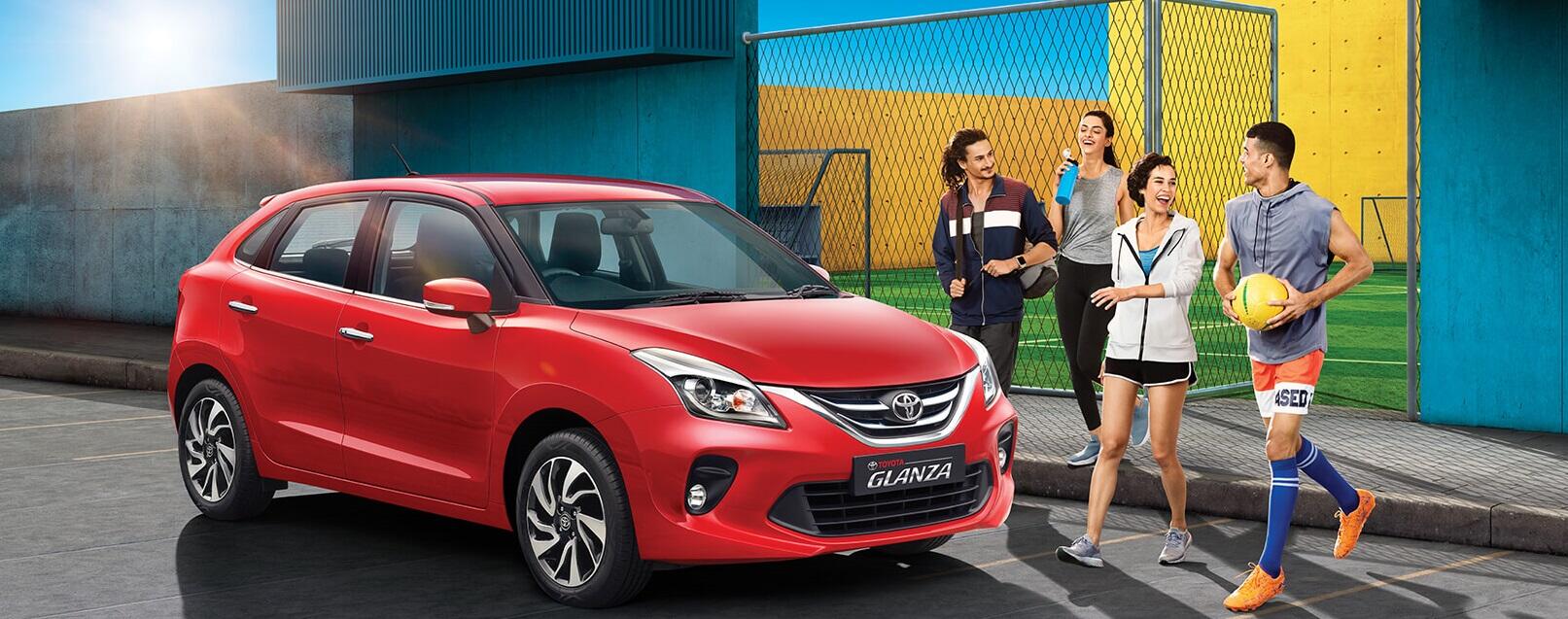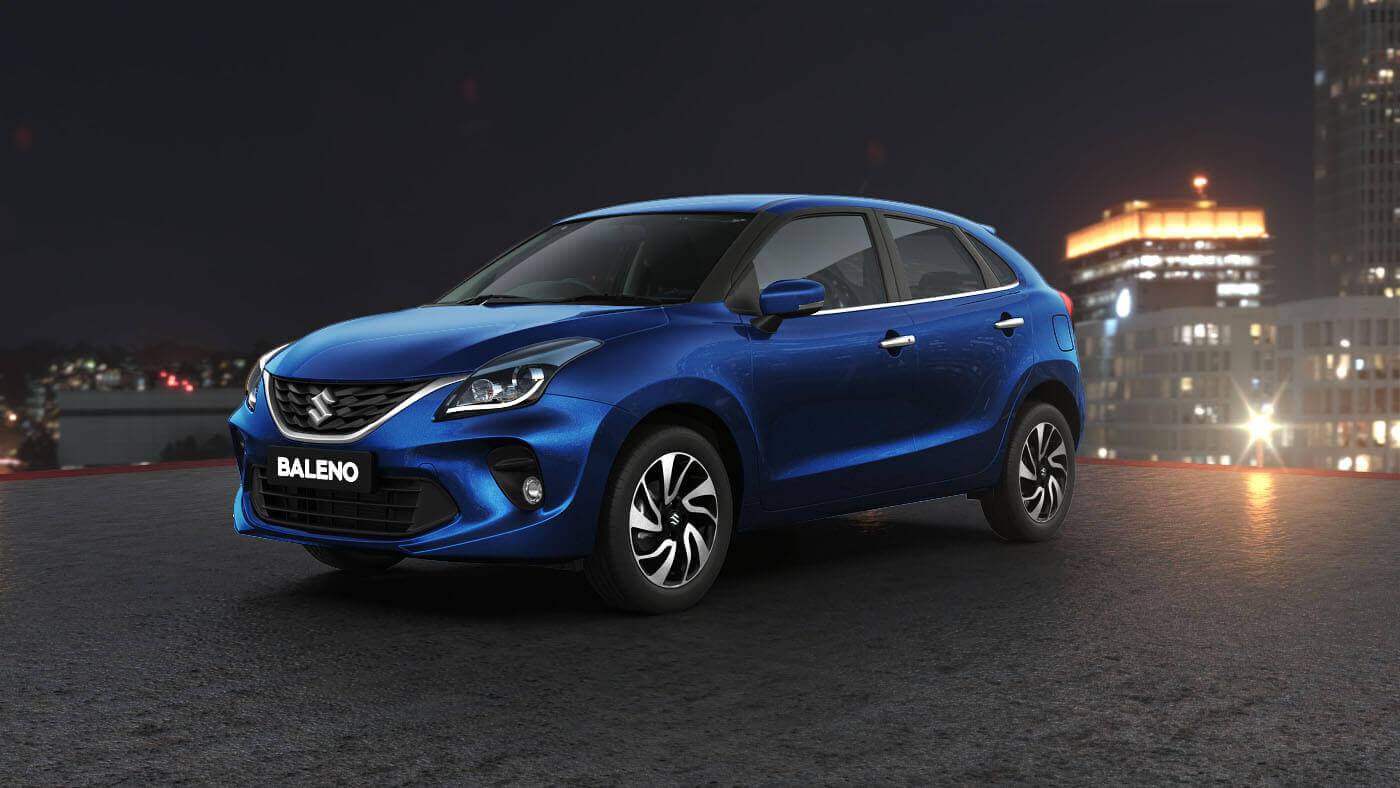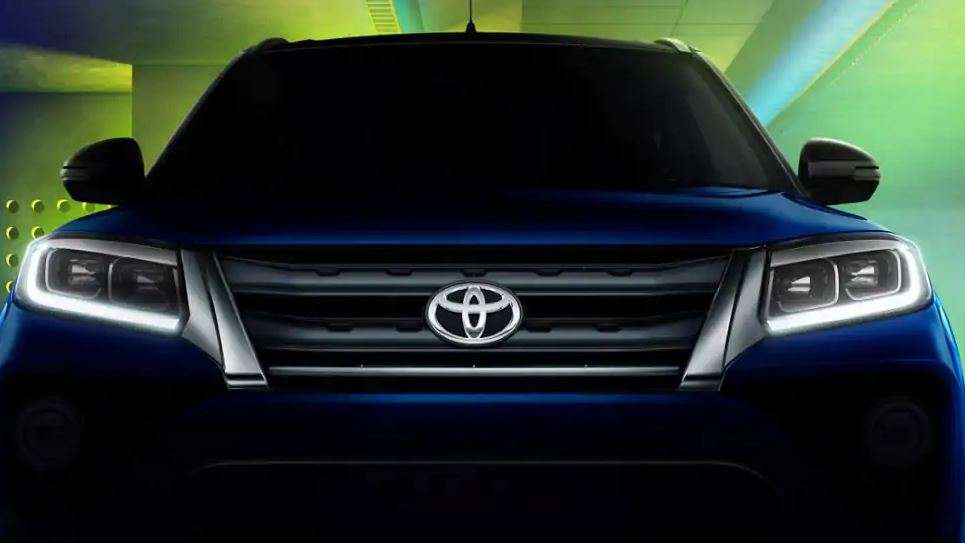How Toyota Is Currently Performing Is It the Number One Global Carmaker Again

New Delhi: Toyota Motor Corporation and Suzuki Motor Corporation started a partnership in 2016 and signed an agreement in August 2019 for a uppercase alliance to establish and promote long-term cooperation in new fields, including electrical vehicle technology and autonomous driving. It was one of the most pregnant collaborations in the world automotive industry.
Equally a articulation statement past the ii companies has stated, under the majuscule alliance, Toyota will acquire 4.94% stake in Suzuki valued at 96 billion yen. At the same time, Suzuki will buy a smaller stake (0.21%) in Toyota worth 48 billion yen.
With India being a major auto market and Suzuki having the panthera leo'southward share in the country through the Maruti Suzuki brand, it was expected to benefit the state's largest passenger car manufacturer, especially when it is aiming to grab a large clamper of the EV segment in India.
Maruti Suzuki's strength in the entry-level and economy class segments is well known. Toyota cars are known for their performance and premiumness~
Equally per the Memorandum of Understanding (MoU) signed by the two Japanese automobile giants at the global level, in the Indian market place, Toyota was supposed to share the Hybrid Electric Vehicle (HEV) engineering science with Maruti Suzuki through local procurement of HEV systems, engines and batteries. On the other manus, Suzuki was to supply two compact vehicles developed on the platform underpinning the Ciaz and Ertiga.
Besides that, under the Toyota-Suzuki partnership, Toyota was supposed to develop a C-segment MPV in Republic of india with Suzuki's expertise and supply the Toyota Corolla sedan. Also, it was said that Toyota would manufacture a cantankerous-badged version of Vitara Brezza compact SUV at Toyota Kirloskar Motor's plant in Karnataka.
Now, afterwards one yr of the announcement, where practise they stand up in the Indian marketplace?

What Toyota Kirloskar Motor got?
Toyota Kirloskar Motor (TKM) has been selling the Glanza premium hatchback in the Indian market for the concluding fifteen months, which is the cantankerous-badged version of Maruti Suzuki Baleno. TKM is at present set to launch its second cross-badged product Urban Cruiser, which is based on the Maruti Suzuki Vitara Brezza.
According to the last 15 month's information published by Club of Indian Motorcar Manufacturers (SIAM), TKM sold 26,764 units of Glanza in the domestic marketplace, which ways around 1,784 units of the car has been sold per month. On the other hand, Maruti Suzuki has registered 180,520 units of Baleno in this period, effectually 12,034 units sold every calendar month in the domestic market.
While the ratio divergence betwixt Toyota Glanza and Maruti Suzuki Baleno is pretty vast at 1:vii, Glanza has helped TKM to boost its sales in the Indian market. As the automaker stated last year, around one-half of the Glanza buyers were starting time-timers.
N Raja, former deputy MD of Toyota Kirloskar Motor, said in a previous interview that the cross badging of the car gave the company new platforms to engage with both new and existing additional customers. He likewise said, "Toyota Kirloskar Motor wants to proceeds customers for life, and the cross-badging strategy volition be leveraged to gain more than of them at a stage earlier than they enter into the Toyota fold in other segments now."
Avik Chattopadhyay, an auto industry expert and quondam head of marketing, production planning and PR at Volkswagen Republic of india, believes that "the Baleno being badged as the Glanza has worked as long equally the former has a waiting menstruation and the Toyota variant is non available in the Suzuki portfolio. The performance of Vitara Brezza and Urban Cruiser will be interesting to watch, especially in these trying times when overall consumer sentiment is down."
According to Chattopadhyay, the "bluecoat engineering" will assist Toyota more than than Maruti Suzuki.
After the failures of models like Etios, Liva and Yaris in India, this is the well-nigh efficient way for Toyota to expand its portfolio into lower price bands, where Maruti Suzuki has excelled for decades. The Toyota network, already profitable with Innova and Fortuner, will increment earnings from these new products like Glanza and the upcoming Urban Cruiser.
Naveen Soni, Senior VP - Sales and Services, Toyota Kirloskar Motor, said, "The all-new Toyota Urban Cruiser will assistance usa with our foray into the compact SUV infinite and fortify our presence in the SUV segment, which is witnessing increased demand in the Indian market place."
He as well added, "TKM is studying to heave localisation of machine components and parts in support of 'Atmanirbhar Bharat' or the Self-Reliant initiative. Under the brotherhood, Toyota and Suzuki remain committed to promoting the widespread adoption of less fuel-consuming vehicles, including electrified vehicles to help Republic of india reduce its environmental footprint and raise energy security."

What'southward in it for Maruti Suzuki?
While, information technology was said that Maruti Suzuki would receive the hybrid technology from Toyota, under the global Toyota-Suzuki partnership, the number one carmaker of India in terms of sales volume is yet using the Smart Hybrid Vehicle by Suzuki (SHVS) engineering science across many of its cars.
So far, there is no attempt to launch a cantankerous-badged model by Maruti Suzuki as well, nether the Toyota-Suzuki partnership.
In this case, what'due south the benefit Maruti Suzuki is reaping from this partnership apart from selling the cars to Toyota Kirloskar Motor?
Toyota, as a brand in India, is renowned for its quality, durability and reliability. Similarly, Maruti Suzuki's trust and familiarity owing to its vast network and value for coin positioning are the best of both worlds for customersHarshvardhan Sharma, Head, Automotive Retail Do, Nomura Research Institute
Co-ordinate to experts, it is still early on to say how the global partnership will unravel in India; just given the importance of the Indian market to both the automakers, TKM and Maruti will be extremely cautious not to upset existing systems and disrupt a well-oiled business machine.
As Avik Chattopadhyay said, "As individual businesses, information technology is a symbiotic relationship equally Toyota gains from dipping into Maruti Suzuki's product plan while the latter has access to Toyota'southward powertrain, new energy solutions and production technology."
He believes that over a period of time, Maruti Suzuki's time to come production portfolio would be determined mainly past Toyota from a global perspective. "It does not brand sense for Maruti Suzuki to spend money separately on developing new free energy solutions like electrical, fuel prison cell and hybrid while Toyota can right away cull from the existing Maruti Suzuki strengths of product portfolio, petrol engines and CNG," Chattopadhyay said. "I foresee that Maruti Suzuki will get back into diesel options using Toyota'south powertrains," he said. Toyota is known for its dominance in the big vehicle segment like Innova Crysta, Fortuner etc, with diesel fuel attributing the lion'southward share for the sale of these vehicles.
Maruti Suzuki, despite being focused on pocket-size petrol models, has not ruled out the chance of selling large diesel cars in this BS-6 era. Talking to ETAuto during an interview, Shashank Srivastava, Executive Managing director - Marketing and Sales, Maruti Suzuki India Express, said, "Maruti Suzuki is open for launching BS-VI - compliant big diesel cars in India."
On the Toyota-Suzuki partnership, badge-swapping strategy and Maruti Suzuki'south potential gain from this, Harshvardhan Sharma, Head - Automotive Retail Practise, Nomura Research Establish, said, "Swapping badges sounds like a proficient proposition. Toyota, as a brand in Bharat, is renowned for its quality, durability and reliability. Similarly, Maruti Suzuki's trust and familiarity attributable to its vast network and value for money positioning are the best of both worlds for customers."
Maruti Suzuki declined to annotate on this in the mail sent by ETAuto.

Is India gear up for cantankerous-badged cars?
Cross-badging in the auto manufacture is nothing new. Several companies accept been doing this for decades across the world, depending on where which brand is stiff. In India too, examples of cross-badging of cars are plenty: Morris Oxford every bit HM Ambassador, Urban center Rover as Tata India, Subaru Forester as Chevrolet Forester, Nissan Micra and Renault Pulse, Volkswagen Vento and Skoda Rapid, Daewoo Matiz as Chevrolet Spark, Renault Duster and Nissan Terrano, Renault Logan and Mahindra Verito, Fiat 1100D and Premier Padmini etc.
Among all these, Volkswagen Vento and Skoda Rapid are on sale now. Whenever one car was launched with cross badging in India, the other one was also on sale. At that place was a cannibalisation issue and one of them was affected severely. Take the example of Nissan Micra and Renault Pulse. Micra was more pop and sold more models than Pulse. Both the models are discontinued in Bharat now.
In the recent past as well, Renault Squeegee and Nissan Terrano, the two models that share the same platform and several components as a outcome of cross-badging through the automakers' global brotherhood, saw cannibalisation. The Renault Duster is however in business organisation, while the Nissan Terrano has been discontinued earlier this year due to low sales volume.
So far, the cross-badging strategy of the automakers, where both the models sell simultaneously, didn't piece of work in India. With the Toyota Glanza on sale alongside Maruti Suzuki Baleno and the upcoming Urban Cruiser to be sold in the aforementioned segment of Maruti Suzuki Vitara Brezza, what is going to be the fate of these cross-badged models, in the long run, remains a question.
With pregnant updates and introduction of new variants that are non available in the original model can assist the cantankerous-badged models. Only, will that success sustain in the long run? That volition show whether the Indian market place is ready for cross-badging or not.
Cantankerous-badging will benefit Toyota in economy class
Maruti Suzuki's forcefulness in the entry-level and economy class segment is well known, while Toyota cars are known for performance, premiumness.
In that instance, the cross-badging in favour of Toyota will exist restricted to entry-level and economy classes only. The moment information technology comes to operation and premium models for a customer, information technology will be Toyota models.
Suzuki is very good at producing medium and smaller cars. On the other hand, we are good in electrification, with Hybrid and other electrified technologyNaveen Soni, Sr. VP - Sales & Services, Toyota Kirloskar Motor
Equally Naveen Soni said, "With our existing tie-upward, nosotros intend to strengthen the competitiveness of both the companies by applying our strong points and learning from each other. Such important tie-ups will pave the way for the introduction of competitive and cut-edge products and technologies in India, giving customers varied choices of products to meet their evolving needs and expectations."
Given the fact that the Indian market has been price-sensitive and the current COVID-19 pandemic has again prompted people to refrain from spending on discretionary items, the small cars are the new big ones. In that case, Toyota could benefit from the motorcar-sharing with Maruti Suzuki, if it opts for the other models in the small automobile segment.
This is reflected in Naveen Soni's words, who said, "Betwixt Toyota and Suzuki, Suzuki is very expert at producing medium and smaller cars. On the other hand, we are good in electrification, with Hybrid and other electrified technology. Our synergy volition yield great value to the auto industry in Bharat in the hereafter."
Withal, it volition depend on how deep and wide Toyota wishes its Indian portfolio to be. Talking well-nigh other models eligible for cross-badging, if the Japanese automaker wants to become upwards to the entry-level form, so Celerio could exist a adept pick.
In the sedan segment, with the muted performance of Yaris, Maruti Suzuki Ciaz can be an efficient alternative. Also, if Toyota wishes to stretch its MPV range below Innova Crysta, XL6 can be rebadged.
The bottom line
Despite the possibilities, experts believe the long-term success of whatever of this will prevarication in a clear distinction between the two badges and their corresponding offers to the same target customer. If messed up, customers will ever go with the "cheaper" culling, and this vehicle swapping strategy could come tumbling downward like a pack of cards!
Besides Read: ETAuto Sectional: Will Maruti Suzuki, Hyundai exist biggest beneficiaries in mail service-Covid era?
Source: https://auto.economictimes.indiatimes.com/news/passenger-vehicle/cars/what-pans-out-for-maruti-suzuki-from-toyota-suzuki-partnership/77848973
0 Response to "How Toyota Is Currently Performing Is It the Number One Global Carmaker Again"
Publicar un comentario